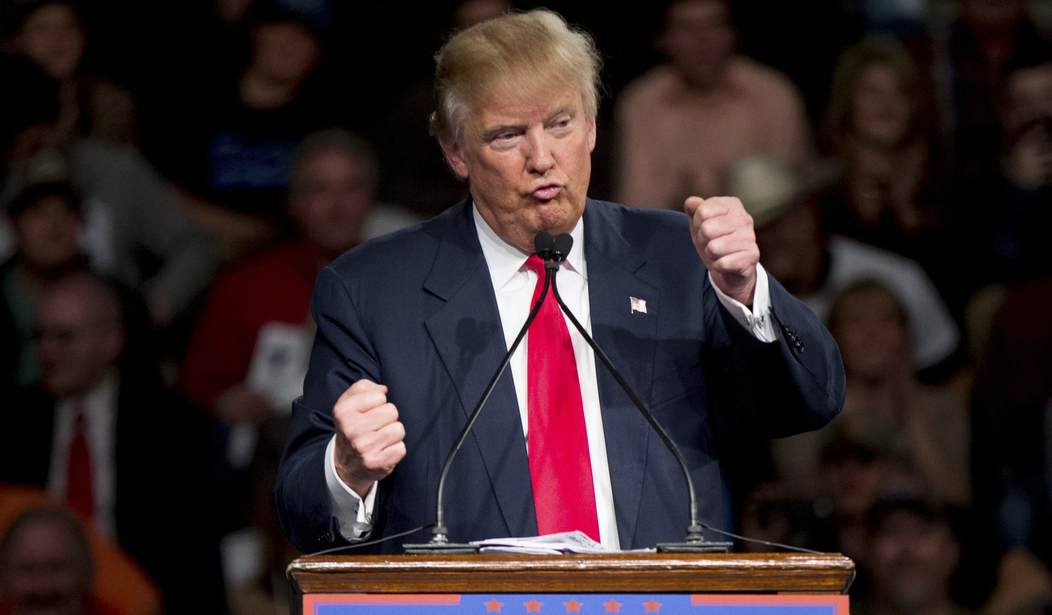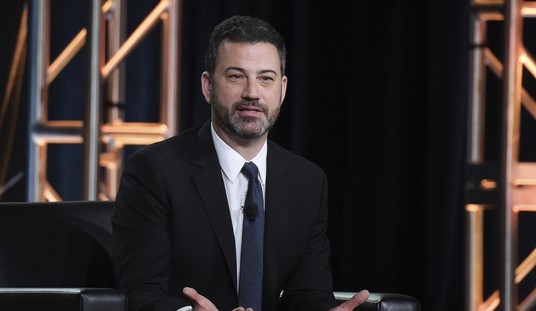The current election cycle was shaping up as a difficult one for Republican senators even before Donald Trump became the leader in the battle for the GOP presidential nomination.
Just as Democrats were exposed in 2014 and lost nine Senate seats and their majority, Republicans have 24 seats to defend in 2016 versus only 10 for Democrats. And this is a presidential year, when Democratic turnout is usually far stronger than for midterms. In 2008 and 2012, the last two presidential election years, Democrats picked up Senate seats (a net of 10), while Republicans had substantial gains from the last two midterms in 2010 and 2014 (a net of 15).
In 2014 Republicans had many targets, as Democrats were defending seats in seven states Mitt Romney won in 2012: North Carolina, Louisiana, Arkansas, West Virginia, South Dakota, Montana, and Alaska. Republicans also picked up an open seat in Iowa and won Colorado, two Obama states from 2012.
In 2016, the picture is almost reversed. Republicans are defending seats in seven states Obama won in 2012: New Hampshire, Florida, Illinois, Pennsylvania, Ohio, Wisconsin, and Iowa. One big difference between 2014 and 2016 is that six of the Democratic seats Republicans won in 2014 were in states Romney had won by 14% or more (only North Carolina had been a narrow Romney victory by 2%). In 2016, only one of the Republican seats — Mark Kirk’s in Illinois — is in a state that is deeply blue, a 17-point Obama win in 2012. In the other six states, Obama won by 7% or less.
Which are the five most endangered Republican-held Senate seats? Most of the serious political analysts have rated Kirk’s and Ron Johnson’s in Wisconsin as the two most vulnerable in 2016, and regard both as, at best, toss-ups or as races leaning to the Democrats.
Johnson will face a rematch against the former senator he defeated in 2010, Russ Feingold. In polls to date, both Kirk and Johnson are behind, in some surveys by 10% or more.
Kirk will almost certainly square off with Congresswoman Tammy Duckworth, who is expected to easily win the Democratic primary in Illinois on Tuesday, March 15. While Illinois might not go as strongly for a Democratic presidential nominee in 2016 as in Obama’s two runs, and African American turnout may be down from those races, it is still a solid Democratic state and there is almost no doubt that the Democratic nominee will win the state, probably by 10 points or more. That is a steep uphill climb for Kirk, who won his seat by only 2% in 2010. While Kirk has won some sympathy for his battle back from a stroke, Duckworth lost both her legs in the Iraq war, and the disability factor probably provides no advantage to either candidate.
Wisconsin has had some close presidential contests (2000 and 2004), and some big wins for Obama in his two campaigns. Republican Governor Scott Walker has also won several contests. For Johnson to survive, he will almost certainly need a competitive race for the state’s Electoral College votes.
A mainstream Republican candidate with midwestern roots, such as John Kasich, would likely run better than other Republicans in the two states and in other industrial battleground states (Ohio, Pennsylvania), improving the chances for both Kirk and Johnson to survive.
Given the large Hispanic population in Illinois, Marco Rubio might have run well for a Republican (Rubio suspended his campaign on Tuesday night). On the other hand, Ted Cruz seems to have little appeal beyond his conservative base in either state. Donald Trump is the ultimate wild card, with appeal to non-college educated blue collar voters, both Republicans and Democrats, but he is also a very problematic candidate for many other Republicans.
Two other GOP-held seats are regarded as toss-ups. One is Marco Rubio’s old seat in Florida, and the other is Kelly Ayotte in New Hampshire. Ayotte will face off against the twice-elected Governor Maggie Hassan, probably the only Democrat who could mount a real challenge to Ayotte. Hassan has high approval ratings in the state. Polls to date consistently show a narrow lead for Ayotte.
Just as with the Jeanne Shaheen-Scott Brown matchup in 2014, this race will probably be close throughout with perhaps a small edge to the incumbent. New Hampshire has been a competitive state in recent presidential cycles, and if the Republican nominee ran very poorly overall (e.g. Trump), it would do some damage down-ballot here as well. Groups favoring Republicans are already raising money to support the endangered Republican senators trying to protect them regardless of the damage at the top.
New Hampshire is one of the states where a landslide presidential victory for the Democrats (signified by the kind of poll lead Hillary Clinton now holds over Donald Trump) would likely swing the Senate race.
Florida is a different story, since the candidates for both parties are not yet known, and could make a big difference in the outcome of the open seat race. Pretty much the entire Democratic state and national leadership are supporting Congressman Patrick Murphy, who will turn 33 in two weeks. Murphy knocked off Republican Allen West in 2012, and then won easily in 2014 in a district that marginally favors Republicans.
Challenging Murphy for the nomination is Congressman Alan Grayson, who has been a controversial, grating progressive in his tenure in Washington. Democrats fear that if Grayson were the nominee, he would become the issue in the race, and a collection of his “latest and greatest” prior statements would be the basis of millions of dollars in attack ads by the Republicans. In the last three polls, Grayson has held about a ten-point lead over Murphy, a reflection of how far left the Democratic Party has moved this cycle.
The Republican Senate nomination is also up for grabs, with two congressmen — Ron DeSantis and David Jolly — as well as Lieutenant Governor Carlos Lopez-Cantera being among a large group who have entered the race.
Jolly is viewed as a moderate Republican, while DeSantis is very conservative and a member of the House Freedom Caucus. Jolly has held a modest lead in early polls over DeSantis, with Lopez-Cantera running third, though DeSantis has raised more money than his opponents. If Jolly ran against Grayson, that might offer an advantage to Republicans who could occupy the center. If DeSantis ran against Murphy, the situation would be reversed. A contest between DeSantis and Grayson would offer a clear ideological choice for voters. If Grayson were nominated, a Trump candidacy for the Republicans might not be as damaging.
The next Republican in order of vulnerability isn’t as clear. My choice would be Pat Toomey of Pennsylvania, though he may benefit from a Democratic primary fight that will include his previous opponent, former Congressman Joe Sestak, trying a second time for the seat. Kathleen McGinty is the preferred candidate for many party officials. McGinty is the former chief of staff to Governor Tom Wolf, former secretary of the Pennsylvania Department of Environmental Protection, and a former candidate for governor. Sestak has run ahead of McGinty in polls by 5-10 points. Toomey leads his potential opponents at this time, and if the state has a close presidential race (5 points or less) he should survive. However, a bigger Democratic win, such as Obama achieved in 2008 (10%), would make Toomey’s re-election bid much tougher.
Other Republicans, all now favored, could have more competitive races if the electoral landscape begins to suggest a Democratic presidential landslide. These GOP senators include John McCain in Arizona, Chuck Grassley in Iowa, Richard Burr in North Carolina, Roy Blunt in Missouri, and Rob Portman in Ohio, with Portman’s race and McCain’s race the closest at the moment. In state polls so far, Trump has run better in parts of the upper Midwest than in most other areas, and he might attract some new voters there while he drives others away. It is speculative, however, to assess his impact at this point, though many Republicans are running scared, expecting the worst.
All in all, Republicans were likely to lose at least two and maybe as many as four Senate seats in a presidential year where each party had a mainstream candidate. The party hardly needs a weak candidate at the top of the ticket.









Join the conversation as a VIP Member